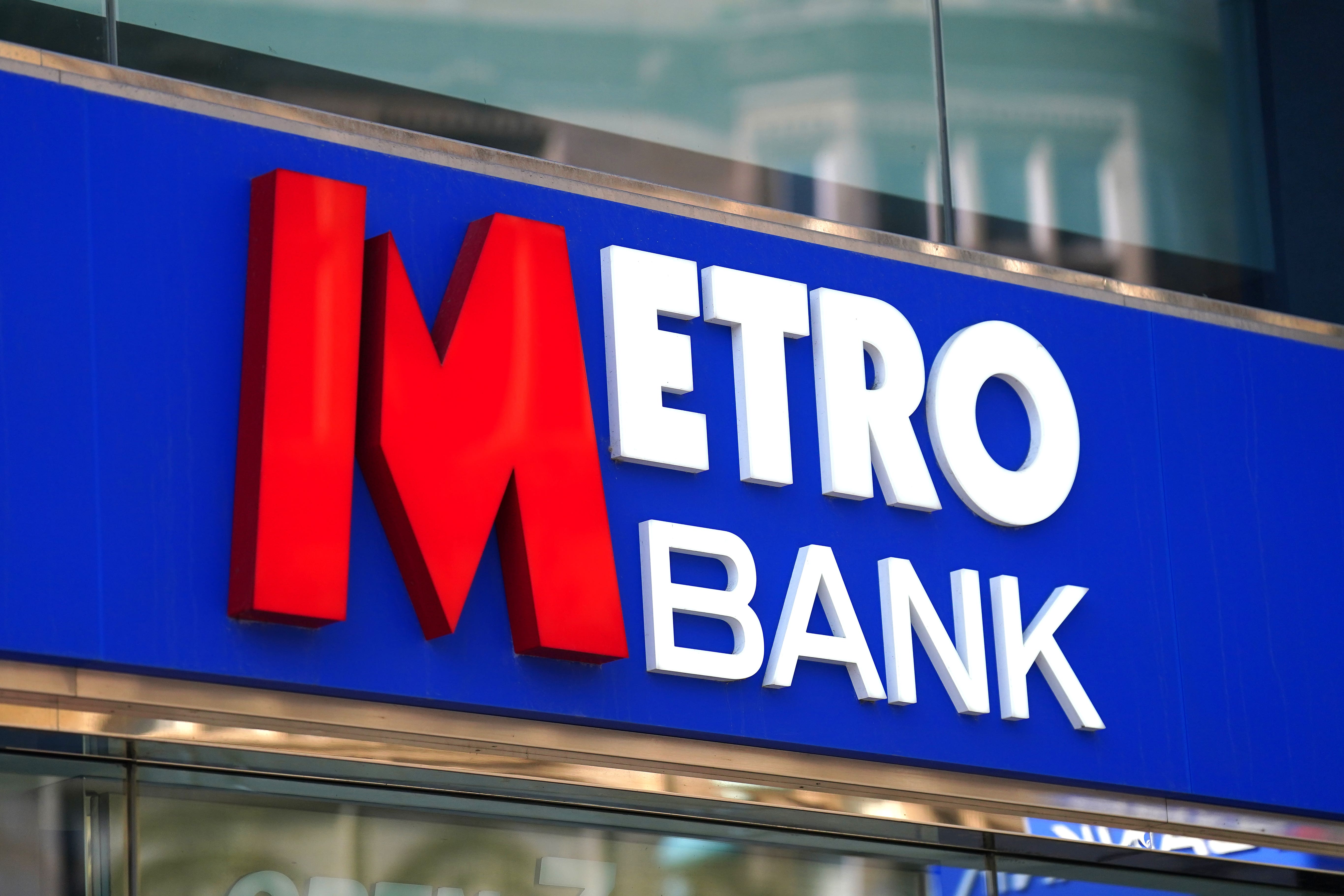Metro Bank axing fifth of workers and reviewing seven-day opening
The troubled high street lender said the moves are part of plans to ramp up cost savings to £50m a year.

Your support helps us to tell the story
From reproductive rights to climate change to Big Tech, The Independent is on the ground when the story is developing. Whether it's investigating the financials of Elon Musk's pro-Trump PAC or producing our latest documentary, 'The A Word', which shines a light on the American women fighting for reproductive rights, we know how important it is to parse out the facts from the messaging.
At such a critical moment in US history, we need reporters on the ground. Your donation allows us to keep sending journalists to speak to both sides of the story.
The Independent is trusted by Americans across the entire political spectrum. And unlike many other quality news outlets, we choose not to lock Americans out of our reporting and analysis with paywalls. We believe quality journalism should be available to everyone, paid for by those who can afford it.
Your support makes all the difference.Metro Bank is cutting around 850 jobs and reviewing whether to stay open seven days a week under plans to slash costs.
The troubled high street lender said it is set to axe 20% of its 4,266-strong workforce as part of aims to ramp up cost savings to £50 million a year.
It said it is in talks with the City regulator, the Financial Conduct Authority, about cutting back its branch opening days and extended store hours and the impact this could have on customers.
Metro Bank is currently open from 8.30am until 5pm Monday to Saturday and 11am to 5pm on Sunday.
It did not give further details of planned changes to its opening days and hours.
The group also did not reveal which roles will be affected, but the review is expected to be across the business and Metro Bank said it is investing in automation for service and back-office operations.
Most of the cost savings are expected to be made next year.
We remain committed to stores and the high street but will transition to a more cost-efficient business model while remaining focused on customer service
The cost-cutting comes after Metro Bank shareholders on Monday approved a funding package worth £925 million to secure its future on Britain’s high streets.
Shareholders gave the green light to a capital fundraise which will see Colombian billionaire Jaime Gilinski Bacal become a majority shareholder in the group with a 53% stake.
Metro Bank chief executive Daniel Frumkin said: “The support shown from our investors through this transaction will allow Metro Bank to accelerate its growth plans, with the new capital allowing us to unlock the potential in the business and deliver sustainable profitable returns as we strive to be the number one community bank.
“We remain committed to stores and the high street but will transition to a more cost-efficient business model while remaining focused on customer service.”
The group insisted on Thursday that cost-cutting will not affect its growth and that it still plans to open around 11 sites, largely across the North of England, by the end of 2025.
But the plans to review its seven-day-a-week and extended hours service marks a key row-back in its aim to focus on high street banking.
It was set up in 2010 as a challenger to the regular banks.
At the time regulators had been pushing for more competition in the market in the wake of the financial crash, allowing Metro Bank to become the first new high street bank in the UK for more than 150 years.
At the time, the plan was to open between 200 and 250 branches in Greater London within the decade. It now has 76 branches across the UK, and 2.7 million customers.
But the big dreams took a hit in 2019 when it was forced to go to shareholders to raise £350 million after it discovered a miscalculation in its books.
It led to shares, which were trading at more than £40 each at one point in 2018, falling to £2.10 by the start of 2020, and the stock has since tumbled further, to less than 41p, amid recent funding woes.
The business suffered after regulators in September refused to approve a request from the bank to lower the capital requirements attached to its mortgage business.
It has also struggled to turn a profit and reports emerged in October that the bank was taking action to shore up its finances by raising money and refinancing debts.